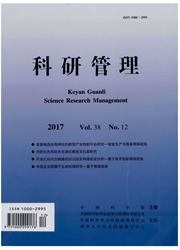

 中文摘要:
中文摘要:
以2005—2008年中国地方国有上市公司为样本,从公司滥用自由现金流进行过度投资视角出发。研究地方政府作为上市公司终极控制人时,其持有的现金流权以及“控制权与现金流权分离”所内涵的公司治理效应。实证结果表明:(1)只有当地方政府持有的现金流权较大时,现金流权的“激励效应”才会显现,能够抑制公司滥用自由现金流进行过度投资的行为;当持有的现金流权较小时,不足以发挥激励作用。(2)控制权与现金流权分离表现出“堑壕效应”。但是当地方政府持有的现金流权较大时,以过度投资攫取控制权私利的成本加大,这种“堑壕效应”会有所收敛。本研究有助于理解转轨经济时期地方国有上市公司终极控股股东与外部中小股东之间的代理冲突,丰富了关于政府控制下公司治理问题研究的实证文献。
 英文摘要:
英文摘要:
By choosing Chinese local state - owned listed companies during the period of 2005 - 2008 as samples, from the perspective of free - cash - flow agency problems,the corporate governance effects of cash - flow rights and control rights are studied when local government is uhimate controller. The empirical re.suits indicate that ( 1 ) only when cash - flow rights held by local government is at a higher level, the cash - flow rights have the incentive effect, which can bind the behavior of abusing five cash flow for over investment; However, when cash -flow rights is at a lower level, the incentive effect is not found. (2) the divergence between control rights and cash - flow rights has the entrenchment effect. However, when cash - flow rights held by local government is at a higher level, the cost of overinvastment for private benefits is increasing, therefore, the entrenchment effect becomes moderate accordingly. The study provides enlightenment for understanding the proxy conflict between the ultimate shareholder and external minority shareholders in local state - owned listed companies during the period of transition economies, and enriches empirical literatures involving the study on corporate governance under the control of government.
 同期刊论文项目
同期刊论文项目
 同项目期刊论文
同项目期刊论文
 期刊信息
期刊信息
